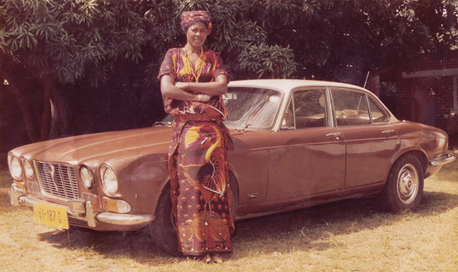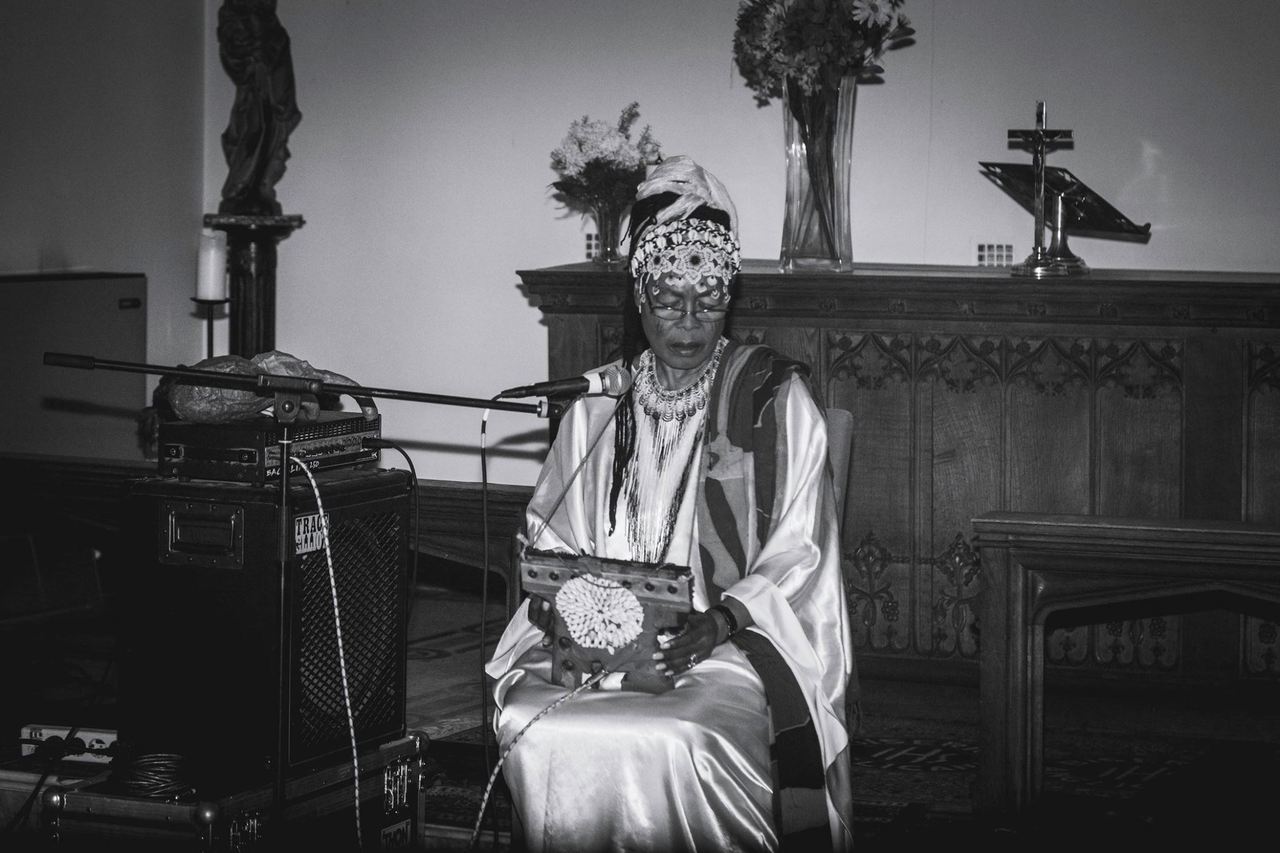
Stella Chiweshe
"Talking a lot usually disturbs. The music that I play, the mbira, it does not need to talk a lot, because we work with sounds, right? If I explain a song, it means that I explain what I think that certain song does. If I just play it, then people can find out themselves, within the different melodies. An explanation is not really needed.”
Throughout the years, Ms Chiweshe developed a very personal relationship with the mbira instrument. "The music enters the person, it is very powerful. It connects with the people in a shorter time because we know that the
mbira music is the voice of water, so it gets in touch with people faster than anything else.”
This idea, that the mbira may sound like the water, has unconnectedly grown into her mind and her spirit and reveals an eerie relationship between the conscious and the unconscious. "What I see in my dreams when I am asleep is different than what I see when I am awake. And what I see when I am awake is what other people see; so, I see it just as an instrument you play at. But when I am asleep, the piece of wood with keys becomes spirit who comes and talks to me. Whenever he comes he introduces himself:
I am Mbira. So then, I am under the observation of mbira. I don’t do what I like; I can say that I’m going to play this song and that song, but that’s a lie. When I start playing, the song starts in my head. I don’t really make a program, I just open up myself to receive. Then, when I hear a song, I receive it and I make it.”
"You are always dreaming about people you don’t know”, Ms Chiweshe says. "Those people are your forefathers and mothers. I also dream things other than the mbira; the stones talk too. The stones talk to me and ask:
what kind of creatures are you, you human beings? You step on us, you sit on us and you use us for anything that you want without excusing yourselves. Tell other creatures like yourself that we are just breathing and seeing and thinking just like you, human beings.


